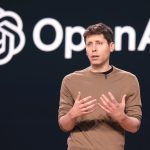The Talent Exodus That Rewired the AI Race
When Meta poured billions into artificial intelligence, Mark Zuckerberg envisioned a future where his company would dominate AI just as it had social networking. But instead of leading the AI revolution, Meta became the training ground for some of its fiercest competitors. Over the past five years, a steady stream of Meta’s top AI minds has defected to rivals such as OpenAI, Google DeepMind, and Anthropic. This leadership drift mirrors how other parts of Meta, like the Chan Zuckerberg Initiative, have been reshaped under corporate priorities.
How Meta Lost Its AI Innovators
Sources inside the AI research community point to a mix of cultural, strategic, and leadership issues at Meta. While the company invested heavily in AI infrastructure, internal politics and shifting product mandates frustrated researchers. This comes despite Zuckerberg’s aggressive recruitment drive, which saw Meta spend over $100 million to secure elite AI engineers and researchers from around the globe.
Meta’s focus on integrating AI into ad targeting and virtual reality—rather than pursuing foundational breakthroughs—alienated scientists eager to push the boundaries of general AI. The company’s push toward superintelligent AI projects, while ambitious, was marked by controversy over costs, priorities, and internal transparency.
By contrast, OpenAI and DeepMind offered a clear mission: develop cutting-edge AI with fewer corporate constraints. This mission-first environment proved irresistible, drawing away figures who had once been key to Meta’s AI ambitions.
The Competitors Who Benefited Most
-
OpenAI gained top machine learning engineers who worked on LLaMA and other Meta models, boosting its ability to scale GPT products.
-
Google DeepMind attracted researchers who specialized in reinforcement learning and large-scale neural networks, accelerating breakthroughs in protein folding and AI safety.
-
Anthropic absorbed ethical AI experts and systems architects, bolstering its position as a safety-focused AI lab competing directly with OpenAI.
These moves weren’t just symbolic—they directly influenced the product pipelines of Meta’s rivals, giving them a measurable time-to-market advantage.
What Meta Sacrificed in the Process
The AI talent drain meant more than just missed opportunities. It slowed Meta’s ability to deliver competitive AI features, forcing the company to play catch-up in key areas like AI chatbots, generative media, and AI search integration. While Meta’s AI-powered recommendation systems remain robust, its reputation as an AI innovator has faded in the eyes of both the public and the research community.
Lessons for Business Leaders
Zuckerberg’s AI saga is a cautionary tale for CEOs in every industry:
-
Talent is the real competitive moat—losing innovators means losing market position.
-
Mission clarity matters—vision without clear execution priorities drives top performers away.
-
Innovation needs breathing room—over-commercializing too early can choke long-term breakthroughs.
By failing to align its AI talent’s ambitions with the company’s business strategy, Meta handed a critical edge to its competitors—an advantage they continue to leverage today.Did losing top AI talent cost Meta the AI race? Discover how Zuckerberg’s missteps fueled OpenAI, Google, and Anthropic’s rise.
Related: Priscilla Chan and Mark Zuckerberg's Tuition-Free School to Close After a Decade














